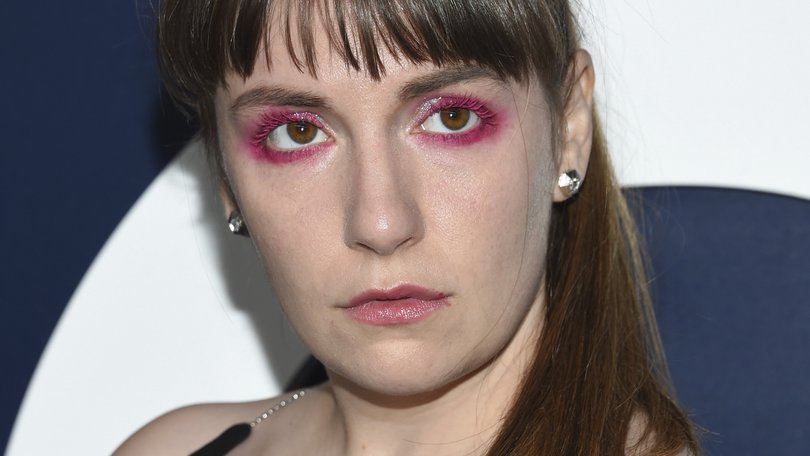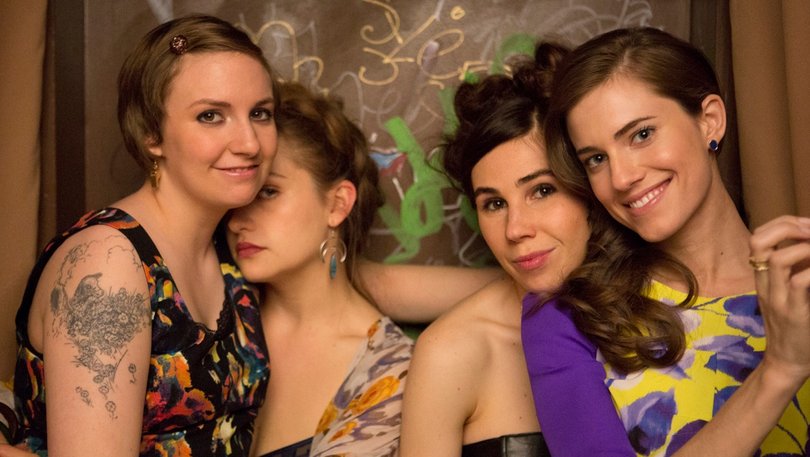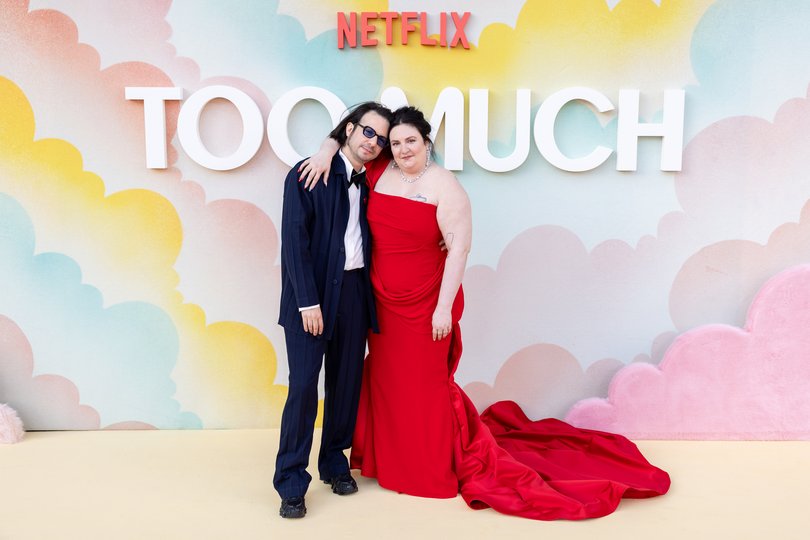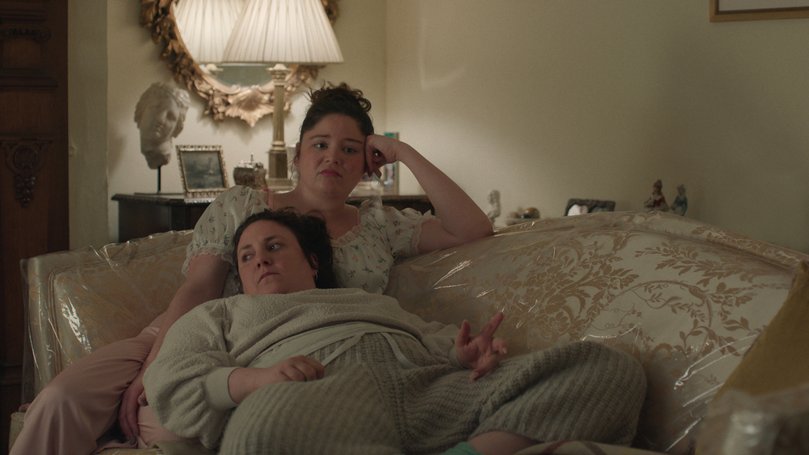Girl’s creator Lena Dunham is a scapegoat for a world that can’t handle opinionated women
As someone who raised her head above the parapet in such a public and sudden way, Dunham really did come to stand in for a generation, whether she wanted to or not.

“I think that I may be the voice of my generation. Or, at least, a voice of my generation.”
Ever since Lena Dunham’s onscreen alter ego, Hannah Horvath, spoke those lines on the very first episode of Girls, the writer-actor-director-producer-memoirist-essayist has been divisive.
How impudent! To declare yourself representative of a generation. Piffle.
Sign up to The Nightly's newsletters.
Get the first look at the digital newspaper, curated daily stories and breaking headlines delivered to your inbox.
By continuing you agree to our Terms and Privacy Policy.Never mind that the line wasn’t designed to do anything other than to highlight Hannah’s naivete, and the complex combination of youthful confidence and the ever-present fear that you’re never going to matter. The character was also, at the time, super high on opium.
Dunham hadn’t actually appointed herself the arbiter of all things Gen Y.
She was 23 years old when she sold Girls to HBO, a deal facilitated by Judd Apatow who had seen her second feature, Tiny Furniture, at South by Southwest in 2010. Apatow saw raw talent in the work.

When Girls launched in 2012 on HBO, then the unchallenged brand of high quality TV, the series immediately captured the zeitgeist. It was zippy, it was smart, it was funny, and it spoke to being a twenty-something woman in New York City, trying to start the life she thought she deserved.
Yes, it was a specific and privileged experience, that of a middle-class, white and educated woman, with access to a financial safety net and to opportunities not afforded to many. Hannah and her friends-sometimes-frenemies, Jessa, Marnie and Shoshanna, were not “typical” in any way, if such a figure even exists.
The series arrived at a time when culture was already reckoning with whose stories got to be told, and who got to tell them, and Girls copped criticism for not being diverse enough in its casting nor its writing. Fair enough.
You could say the same of many HBO shows from that era, including Bored to Death, a three-season comedy that ran immediately before Girls, also set in the same gentrified, hipster areas of Brooklyn, about equally waylaid characters. But almost no one did. It never reached the heights of Girls and its creator and leads were men.
The lack of diversity on Girls was not why, or not the whole of why, Dunham was as scorned as much as she was loved.

She was a woman, she was young, she was successful, she was not conventionally beautiful and she came from privilege. Plus she was opinionated and had no qualms expressing them.
Everything about her was up for picking apart — she went to what the Americans call a liberal arts college, conjuring images of self-indulgent youths sitting around reading and debating instead of learning “real” skills. Her parents were successful artists so she was essentially a nepo baby, and she put her body on display with frequent nude scenes.
None of this would’ve mattered if she hadn’t been the gender she is, and the age she was. A big part of it was she was genuinely a talent. That’s a combination a lot of people are not comfortable with.
At the time in the mid-2010s, the average Gen Z-er was still in primary school, not yet ready to rile up the pearl clutchers. Gen Y was on the ascendency, and like every generation before them, they were the focus of “we didn’t do that in my day” judgement from their forebears.
As someone who raised her head above the parapet in such a public and sudden way, Dunham really did come to stand in for a generation, whether she wanted to or not.
The perception was, Dunham, like every Gen Y-er, was too entitled, too progressive, too impatient, too smug, too, too, too.
Her new show comes out next week and it’s called Too Much. If it’s not semi-autobiographical, then it draws heavily from her experience moving from her native US to London in 2021.
The lead character is Jessica, a thirty-something commercial producer only months out from a bruising and dramatic break-up. After one alcohol and mania-fuelled episode, her former brother-in-law and boss suggests she takes some time out and go work out of the London office.
Jessica has very specific ideas of what life in London must be like, inspired by Jane Austen novels and 1990s rom-coms such as Notting Hill. Reality is a bit different, but she does meet Felix, an aspiring musician. Jessica can’t let go of her ex though, stalking him and his new fiancé on socials.
When Dunham moved to London, she hadn’t planned on staying there, but she also met an English musician, Luis Felber, with whom she co-created Too Much.
She didn’t play the character this time, casting Hacks break-out Megan Stalter in the role, and appears on the show in a peripheral role as Jessica’s sister.
It’s tempting to watch Too Much for the parallels between Jessica and Dunham, and there are plenty to be found. Because she pours so much of herself into her work, audiences will always look for those similarities.
It’s a double-edged sword. The reasons why people relate to her shows is also partly why others hate Dunham. They think every flaw, every annoying thing, every f...-up her characters make must reflect who she is.
The characters in her work, in Girls, Too Much, the US remake of Camping, the underrated medieval comedy film Catherine Called Birdy, are multifaceted. They’re brilliant and they’re awful, they make bad decisions and say horrible things, they’re dreamers and they’re good friends. They are all the things, and all of us, at least some of the time.
She has a knack for writing characters that you love, even if you kind-of hate them.
Dunham has said some very silly things publicly. For a while, she didn’t have a filter and things she declared — on feminism, on masculinity, on politics, on social issues — earned the ire of the left and the right. Whichever side you were on, you could find a reason to disagree if you’re looking for a fight.
But it was the release of her memoirs in 2014 that really supercharged the hate. In the book, Not That Kind of Girl, she described a memory from when she was seven years old. Curious about human anatomy, she looked and touched her younger sibling’s vagina.

Dunham was a small child and it was not a sexualised interaction but the passages were seized by many, especially the right-wing media, to call her a child molester. The incident fed into a narrative they had already constructed about Dunham, even though child psychologists at the time, according to Vox, had said it did not appear to be abuse.
Dunham is not perfect. She’s been intentionally spiky, she’s been to rehab (she’s now sober), and she’s also had time to reflect on her relationship with fame and public discourse in the past.
Last year, she told The New Yorker: “I was too young to really have developed he skill set to sort of keep one thought in the work and the other in the world.
“The work is always asking questions, and allowing you to meet it fully. But the person is young, and doesn’t, necessarily, distinguish between those two realities. Trollish behaviour, or edgelord behaviour, or whatever we call it now, is really not in my DNA make-up
“I think that people would be surprised by how much the person they experienced as provocative was honestly, just puppishly, trying to show up and give the most and do the best.”
A lot of people are not comfortable with a talented - her writing really is just wonderful - and successful young woman, and will grasp at straw man arguments to diminish their position in the world without acknowledging, let alone accepting, that being flawed or messy is human.
Haters need to get over it.
Too Much is on Netflix from July 10.

